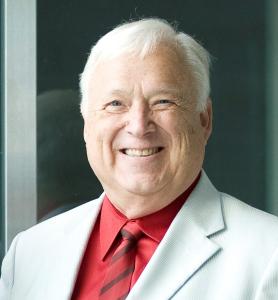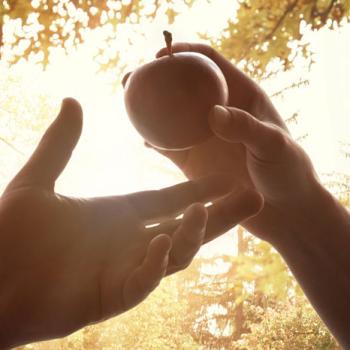Why am I lost in depression?

I got lost in depression. Here’s what happened.
Following a surgery recently I took a prescribed oxy… drug. It helped mitigate the pain, to be sure. But I found my mind losing its ability to focus. I couldn’t organize sensory stimulation. Then, I got depressed. I felt a black abyss overtaking me. Yes, I thought about suicide.
Now, weeks after, the effects of oxy… have disappeared. But these dark moments remain in my memory.
I try to imagine what it would be like for a teenager or a terminally ill person to live in fear of the dark abyss day after day, continually. It would be unbearable. I would want to escape.
When we’re depressed, existential questions ring in our ears like a fire alarm.
Teenage girls and boys get lost in depression differently.
Many teenagers feel lost in depression. What do we know?
 Let’s start with what we’ve learned from the CDC’s Youth Risk Behavior Surveillance System (YRBSS) which tracks young people in grades 9 through 12 to identify behaviors that could lead to less than optimum health. “From 2011 to 2021,” says Sujata Gupta, “persistent sadness or hopelessness in boys went up 8 percentage points, from 21 to 29 percent. In girls, it rose a whopping 21 percentage points from 36 to 57 percent” (Gupta 7/1/2023, 18).
Let’s start with what we’ve learned from the CDC’s Youth Risk Behavior Surveillance System (YRBSS) which tracks young people in grades 9 through 12 to identify behaviors that could lead to less than optimum health. “From 2011 to 2021,” says Sujata Gupta, “persistent sadness or hopelessness in boys went up 8 percentage points, from 21 to 29 percent. In girls, it rose a whopping 21 percentage points from 36 to 57 percent” (Gupta 7/1/2023, 18).
This means almost two-thirds of girls report high levels of melancholy if not outright despair. They persistently feel sad or even hopeless. This indicates being lost in depression.
What about boys? Only one third report sadness or hopelessness. Does this mean boys are less likely to get lost in depression? No. Huh?
Boys get lost in depression, to be sure. But their depression comes the surface as irritability or even anger (Shute 7/1/2023). If we ask about sadness or hopelessness while ignoring irritability and anger, we’ll overlook depression. “The gap between boys and girls might not be as wide as the numbers indicate,” says Gupta. “Depression manifests differently in boys and men than in girls and women…Girls are more likely to internalize feelings, while boys are more likely to externalize them…boys may act irritated or lash out” (Gupta 7/1/2023, 18-19).
When it comes to suicide, boys are more effective. Although “teen girls reported higher levels of suicidal thinking,” observes Gupta, “boys die by suicide at a higher rate” (Gupta 7/1/2023, 21).
Maybe we can conclude at least tentatively: both girls and boys are experiencing greater or lesser degrees of depression. Both suffer. Both concern us.
5 Ways to help yourself through depression.
Our medical experts take getting lost in depression quite seriously. The National Institutes of Health alert us that teen depression is more than just moodiness. WebMD lists symptoms. The Mayo Clinic wants to make a diagnosis before prescribing treatment. Is there a way forward?
 Nemours Teen Health provides one way for each finger to help yourself through depression. A total of five.
Nemours Teen Health provides one way for each finger to help yourself through depression. A total of five.
- Exercise
- Eat healthy foods and drink plenty of water
- Express yourself
- Don’t dwell on problems
- Notice good things
I actually think these five ways might be helpful. I’ve often thought that the best thing we can do for our brains is to get lots of oxygen pumping through our head. Vigorous exercise combined with healthy eating will produce a cheerful outlook on life. We’ll all end up like Charlie Brown: optimists.
But none of these five ways will directly deal with our existential questions.
What is an existential question again?

In this series we’ve been asking about asking existential questions. So, what’s an existential question again? We’ve said that an existential question has to do with existing. “To be or not to be? That is the question,” exclaimed Shakespeare’s Hamlet.
When we’re lost in depression, that question – to be or not to be? – comes roaring into our consciousness like a bull into the ring.
Existential questions have theological answers.
In his Systematic Theology, Paul Tillich offers us theological answers to our existential questions (Tillich 1951-1963, Volume One).
- Why do I exist? Answer: God.
- Where do I find the meaning of my life? Answer: God.
- Where do I find my true self? Answer: God
Conclusion
Existential questions can penetrate our consciousness at any moment. But they seem to overwhelm us when we get lost in depression.
Faith — faith as trust in the God who created us and who wants to bless us — forms and shapes us into a self. That self we become is a self-in-relationship with what is ultimate. Faith, along with an extra dose of oxygen to the brain, can dispel that black cloud of depression.
PT 3604 Asking Google Existential Questions: why I’m lost in depression.
Try: “Asking Google Existential Questions” or “What happens after we die?”
▓

For Patheos, Ted Peters posts articles and notices in the field of Public Theology. He is a Lutheran pastor and emeritus professor at the Graduate Theological Union. He co-edits the journal, Theology and Science, with Robert John Russell on behalf of the Center for Theology and the Natural Sciences, in Berkeley, California, USA. His single volume systematic theology, God—The World’s Future, is now in the 3rd edition. He has also authored God as Trinity plus Sin: Radical Evil in Soul and Society as well as Sin Boldly: Justifying Faith for Fragile and Broken Souls. See his website: TedsTimelyTake.com. Watch for his new 2023 book, The Voice of Public Theology, published by ATF Press.
▓
Works Cited
Gupta, Sujata. 7/1/2023. “The Boys are Not OK.” Science News 203 (12): 18-21.
Shute, Nancy. 7/1/2023. “Boys and girls are suffering but in different ways.” Science News 203 (12): 2.
Tillich, Paul. 1951-1963. Systematic Theology. 1st. 3 Volumes: Chicago: University of Chicago Press.


















